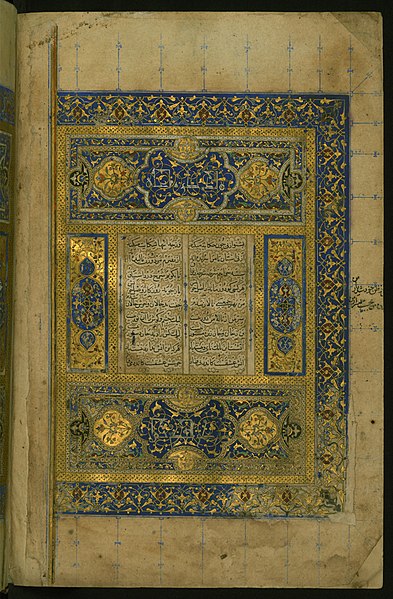Divan-i Kabir, also known as Divan-i Shams and Divan-i Shams-i Tabrizi, is a collection of poems written by the Persian poet and Sufi mystic Mawlānā Jalāl-ad-Dīn Muhammad Balkhī, also known as Rumi. A compilation of lyric poems written in the Persian language, it contains more than 40,000 verses and over 3,000 ghazals. While following the long tradition of Sufi poetry as well as the traditional metrical conventions of ghazals, the poems in the Divan showcase Rumi’s unique, trance-like poetic style. Written in the aftermath of the disappearance of Rumi’s beloved spiritual teacher, Shams-i Tabrizi, the Divan is dedicated to Shams and contains many verses praising him and lamenting his disappearance. Although not a didactic work, the Divan still explores deep philosophical themes, particularly those of love and longing.
A page of a copy circa 1503 of the Divan-i Shams-i Tabrizi. For details, see: Rumi ghazal 163.
Pages from a 1366 manuscript of the Divan-i Shams-i Tabrizi in the Mevlâna mausoleum, Konya, Turkey
Jalāl al-Dīn Muḥammad Rūmī, or simply Rumi, was a 13th-century poet, Hanafi faqih, Islamic scholar, Maturidi theologian and Sufi mystic originally from Greater Khorasan in Greater Iran.
Rumi, by Iranian artist Hossein Behzad (1957)
Jalal ad-Din Rumi gathers Sufi mystics
A page of a copy c. 1503 of the Diwan-e Shams-e Tabriz-i. See Rumi ghazal 163.
Double-page illuminated frontispiece, 1st book (Persian: دفتر, "daftar") of the Collection of poems (Masnavi-i ma'navi), 1461 manuscript





